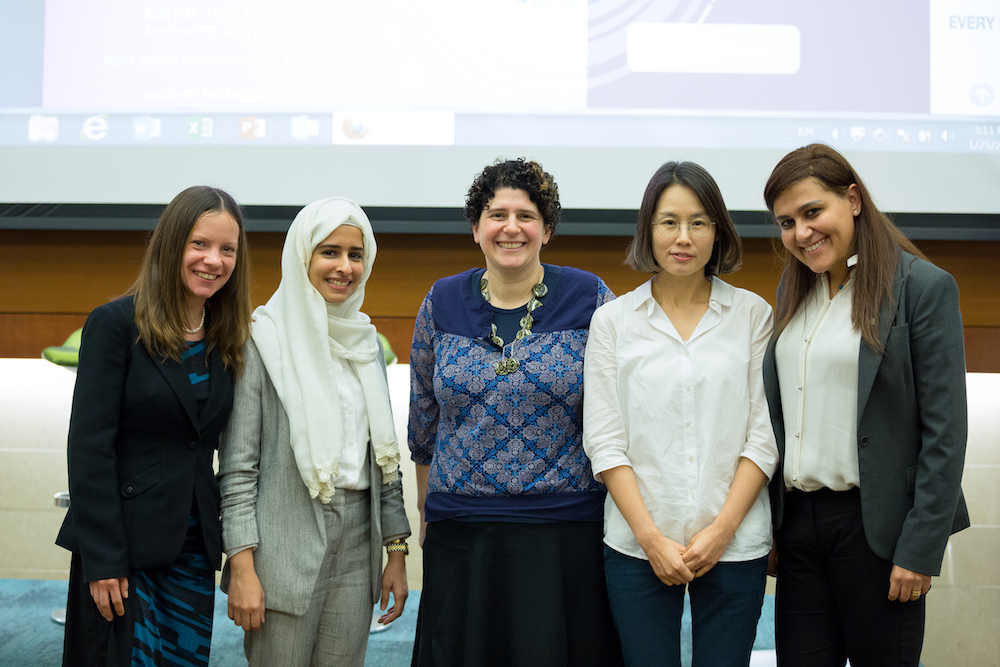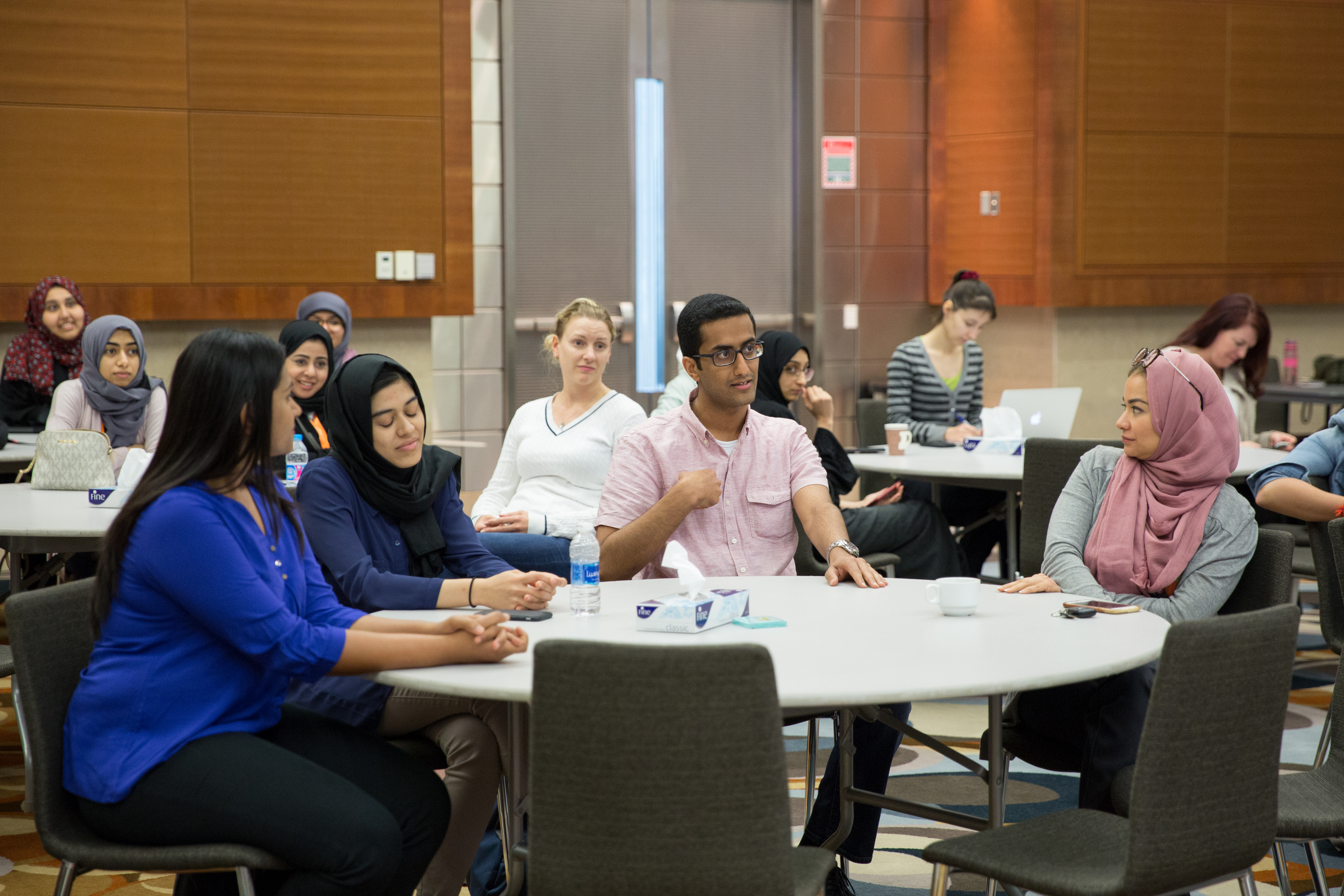Women in the Human-Machine Future

Women speakers featured prominently on campus as part of this year's Winter Enrichment Program (WEP 2018). File photo.
-Guest written by Ananya Ashok for KAUST News
KAUST Ph.D. student Ananya Ashok reflects on the 2018 Winter Enrichment Program (WEP) and the program's female speakers.
"The future is today" was part of the 2018 KAUST Winter Enrichment Program's theme of Human-Machine Future. With nearly one female speaker for every three speakers during the program, I saw a strong parallel theme reinforcing that the future is "Women in STEM." Women are scientists, artists, innovators, inventors, entrepreneurs, designers, managers, administrators, organizers, communicators, architects and trainers…and all of them are champions in their own ways. Throughout WEP, I had the opportunity to witness such incredible women deliver keynotes, lectures and workshops.

KAUST Ph.D. student Ananya Ashok (pictured) found the 2018 Winter Enrichment Program's (WEP) female speakers to be very inspiring as they discussed their scientific careers. File photo.
While I listened to and was fascinated by their talks, I wished there were an opportunity where I could reach out to these inspiring women and get to know them as people.
On a single platform
The opportunity arrived on the final day of WEP, during which three consecutive events—"The Rise of Nanomachines," "Women in STEM" and "Speed Mentoring"—provided KAUST students with opportunities to be inspired and mentored.
As noted by KAUST Associate Professor Niveen Khashab, "The aim of the series of events was to bring together different levels of people—women in science ranging from grad students to professors—to a single platform, providing them with the opportunity to interact and bond."
The "Rise of Nanomachines"—a lecture series delivered by five women in science, including Shahad AlSaiari, a KAUST Ph.D. student, drove home the point that women are slowly but steadily claiming leadership positions in science. From their scientific talks on imaging plasmonic nanoparticles to using nanoparticles for drug delivery, I saw not only a passion for science but also a strong network among the female scientists, enabling them to collaborate in their research and share a bond of friendship.

KAUST students listen to women speak about their experiences in science and research as part of the University's 2018 Winter Enrichment Program (WEP). File photo.
The "Speed Mentoring" session offered an opportunity to develop fruitful mentor-mentee relationships with other professional women in STEM. Female graduate students looking for friendly mentorship and guidance could network and exchange contacts with 15 women in STEM who volunteered to be mentors. Finding prospective mentors from among inspiring women who live and work at KAUST laid the foundation to creating and sustaining a strong support network for graduate students.
Women in STEM
Attending the "Women in STEM" WEP sessions reinforced the reasons why I chose to be in science and why being a woman in science is important to me. Through science, we find solutions to problems affecting humanity—problems that most often affect men and women differently. As more women like me opt to pursue careers in science and strive for leadership roles, we create holistic development by bringing diversity and balancing scientific perspectives to solving world problems.
Yet, with only 26 percent of positions in STEM fields represented by women and much less in leadership roles, one must often remind oneself that it need not be a lonely journey. Reaching out and connecting is all that is required. As Laurla Sagle, assistant professor of chemistry at the University of Cincinnati, told me, "Women are successful all over the world. It does not matter where you are. You can be successful and be yourself."
Being a young woman in science, I wanted to find a time during which I could have a "one-to-one" chat with women who have been down the same path I'm traveling before. I'm glad that this year's WEP provided me with this opportunity. WEP 2018 has not only acquainted me with the "Human-Machine Future," but it has also given me insight to the the current and future roles of women in crafting this future.

